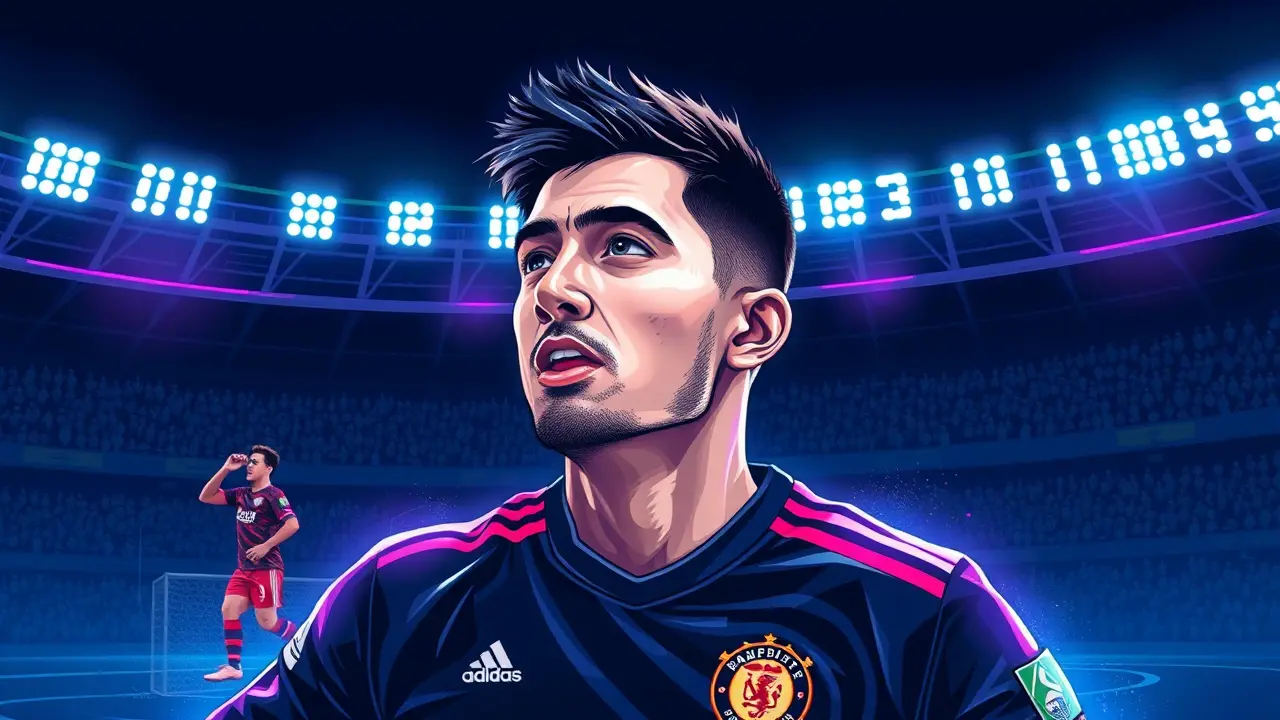Kokorin on Smolov in Broke Boys: Did Not Understand His Move
In the ever-evolving theater of global football where career trajectories are scrutinized with the intensity of a Champions League final, the recent pivot of Russian striker Fyodor Smolov from professional pitches to the media-fueled spectacle of Broke Boys FC has sent ripples of bewilderment through the sport's inner circles, a sentiment powerfully echoed by his former national teammate Aleksandr Kokorin in a revealing exchange that lays bare the perplexing nature of modern athletic transitions. Speaking with the candid clarity of a veteran who has navigated his own share of career crossroads during his tenure with Aris, Kokorin disclosed that mutual acquaintance Krasava had actively sought to recruit Smolov, prompting Kokorin to relay his belief that had the prolific forward desired to continue his professional journey within Russia's competitive leagues, the opportunity undoubtedly existed—implying instead a fundamental shift in ambition or desire.This revelation gains profound context when examining Smolov's storied legacy; once a talismanic figure for Krasnodar and the Russian national team whose clinical finishing drew legitimate comparisons to the legendary Andrei Arshavin in his prime, his decision to step away from traditional football's structured environment to join Broke Boys—a media collective competing in the Media Football League and even making a surreal appearance in the FONBET Russian Cup—represents one of the most unconventional career moves in recent memory, akin perhaps to Zinedine Zidane abandoning Real Madrid for a viral YouTube squad at the height of his powers. Kokorin's confessed confusion—'I generally didn't understand how he ended up there, what he forgot'—resonates deeply within a football culture that venerates linear progression, yet this move arguably mirrors broader industry trends where athletes increasingly leverage media platforms for brand building and post-career transitions, though rarely while still possessing the technical quality Smolov demonstrated by tallying 2 goals and 1 assist in his cup appearances, statistically drawing him level with Arshavin himself in the national scoring rankings.The analytical perspective reveals deeper layers: where traditionalists see a bewildering departure, modernists might identify a savvy pivot into the attention economy, leveraging his existing fame within the high-engagement media football scene that has attracted numerous former professionals seeking renewed relevance. However, the stark contrast between Smolov's current environment—documented through chaotic cup matches featuring delayed arrivals and contentious refereeing—and his previous status as a leading striker in the Russian Premier League creates a cognitive dissonance that even close colleagues like Kokorin cannot resolve, particularly when considering Smolov's simultaneous business ventures like 'Coffee Mania' which Kokorin wryly noted as 'his own headaches. ' This multifaceted career evolution challenges conventional wisdom about athletic decline and reinvention, suggesting a new paradigm where media presence and competitive performance intersect in unpredictable ways, leaving observers to ponder whether Smolov's path represents inspired innovation or perplexing misstep in the beautiful game's constantly rewriting playbook.
Latest News
The charts are whispering what the true believers have felt in their bones for weeks—Dogecoin is carving out a bottom.
17 hours ago5 comments
The Institute for Fiscal Studies has thrown a stark warning onto Rachel Reeves's desk, urging the Chancellor to confront a potential £22 billion shortfall in
17 hours ago3 comments
Alright, let's break down this absolute heater of a performance from the Chicago Blackhawks, because if you missed this one, you missed a party.
17 hours ago5 comments
The ice was hot last night in the NHL, folks, serving up a slate of games that felt less like a regular season Tuesday and more like a playoff preview with a
18 hours ago3 comments
The XRP chart is painting a tantalizing picture for those with the stomach to withstand the relentless pressure from crypto's leviathans.
18 hours ago4 comments
It’s in the small shifts, the quiet recalibrations of a Thursday morning, where the most meaningful change often takes root.
18 hours ago4 comments
In a move that sent ripples of quiet confidence through the crypto ecosystem, blockchain intelligence firms tracked a monumental treasury allocation from
18 hours ago4 comments
In a move that would have drawn a nod of approval from historical figures like Churchill, who understood the delicate balance of power within democratic
18 hours ago2 comments
JA
Jamie Wilson123k20 hours ago
wait what this is such a wild career move tbh what do you guys think, is this a new trend or just a one off
0
MA
Mark Wilson123k21 hours ago
not sure why everyone's so shocked tbh, it's just a career change. seems like a solid move if he's building his own brand
0
JA
Jamie Wilson123k1 day ago
tbh i don't get this move at all smh he was so good, feels like a weird sellout move
0
JA
Jamie Carter123k1 day ago
tbh i kinda get it, everyone's trying to be an influencer now smh but from a pro league to this? idk man
0
MA
Mark Richardson123k1 day ago
major move from smolov tbh didn't see that coming at all idk if this is a genius career pivot or just a weird sidestep
0
